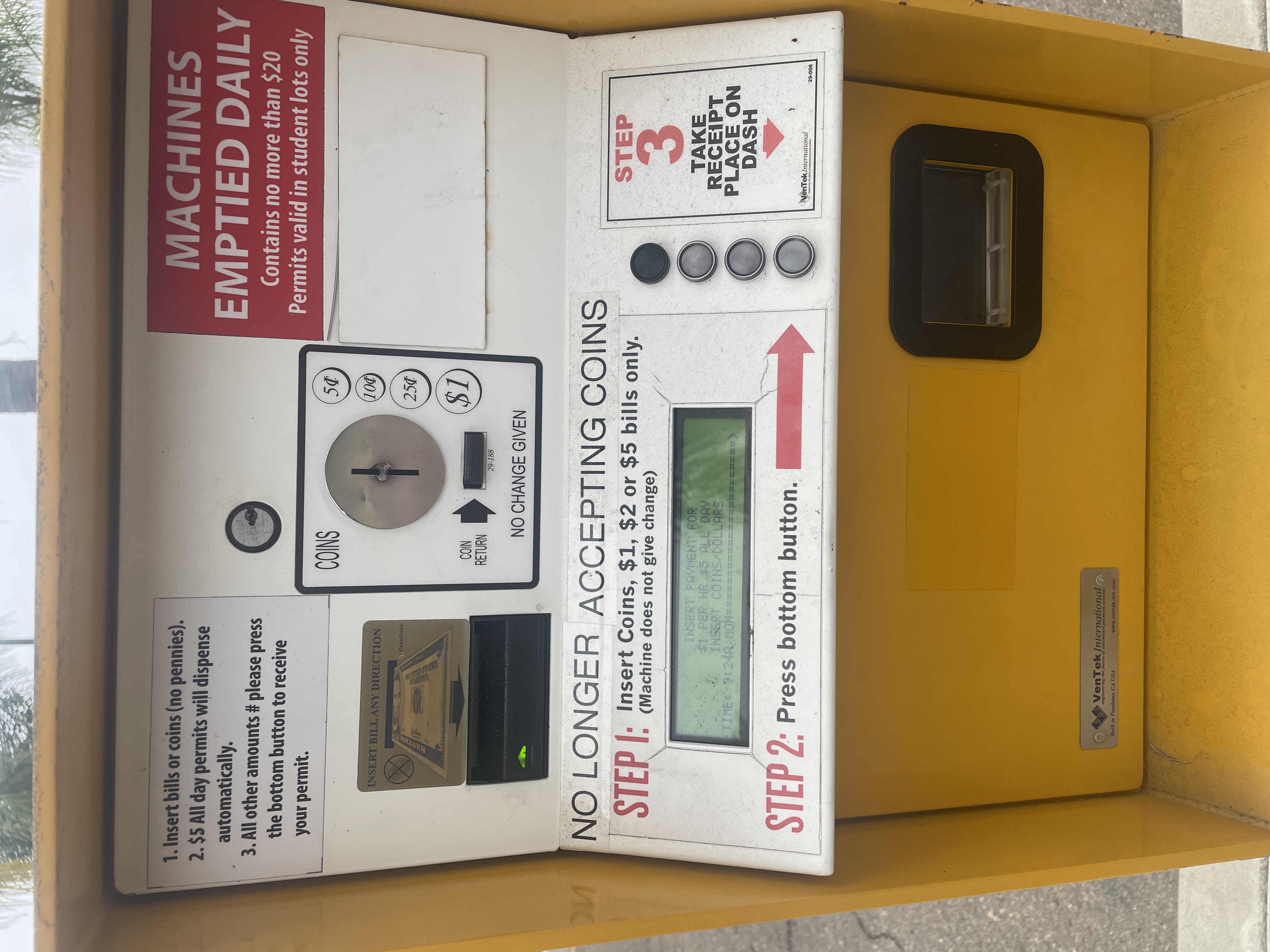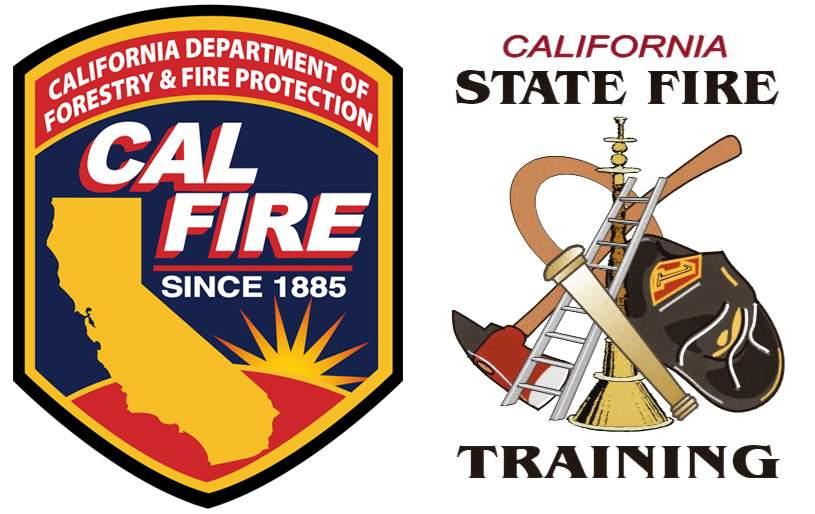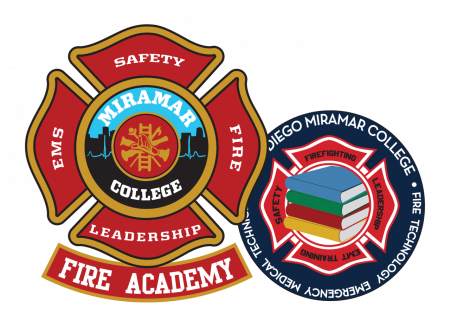Accredited CoursesSan Diego Miramar College offers Driver Operator, Company Officer, Fire Inspector, Fire and Emergency Services Instructor, Fire Investigator, Chief Officer, Plans Examiner, Fire Marshal, and Rescue Technician Courses annually. Scroll below for course flyers and review all information for enrollment and general information for students in the Fire In-Service Program. |
|
To enroll in Miramar's Fire Accredited courses, one must be a registered Miramar College Student. Apply to Miramar College HERE.
For support enrolling, contact the Admissions and Records Department.
Email: miraadm@sdccd.edu
Phone: (619) 388-7844
State Fire Training ID Registration
If you do NOT have an account set up through State Fire Training (SFT), Please visit State Fire Training website
Tuition Costs, Required Textbooks and Certification Fees:
All SFT Certificate Courses fees require a college enrollment fee of $46 a unit (typically 1/2-unit courses $23 health fee. State Fire Training Certification Fees are covered through a grant with San Diego Workforce Partnership. Textbook requirements are provided on the individual class flyers on the above class links.
Location of Classes
Fire Technology is located on the North end of campus at San Diego Miramar College directly behind Home Depot. Direct Access from Hillary Rd (Carpool / Fast Track Lanes only) or West on Mira Mesa Blvd / 15 freeway and South on Westview Parkway. (Fire Technology - Building R is directly South of Mira Mesa Home Depot) Miramar Campus Interactive Map Link. SFT Classes are located in R1-101,102 or 103. It is recommended to park in the Northeast Parking Structure on Campus.
Miramar Parking Passes
Daily parking permits rate at $5 all-day.

All Accredited Courses:
Course |
Description |
| Driver Operator 1A-Course Flyer |
Fire Apparatus Driver/Operator (2017)This course provides information on fire apparatus preventive maintenance and driving/operating. Topics include routine tests, inspections, and servicing functions, operate, back, maneuver, and turn a fire apparatus in a variety of conditions; and operate all fixed systems and equipment on a fire apparatus. This course is based on the 2014 edition of NFPA1002 Standard for Fire Apparatus Driver/Operator Professional Qualifications. This course fulfills the requirements for a Class C Firefighter Endorsement. Prerequisite: Hold a valid Class C Driver's license (minimum). |
| Driver Operator 1B-Course Flyer |
Pumping Apparatus Driver/OperatorThis course provides information on pumping apparatus preventative maintenance and operations. Topics include routine tests, inspections, and service functions; producing hand, master, and foam fire streams, relay pump operations; and supplying water to fire sprinkler and standpipe systems. This course is based on the 2014 edition of NFPA 1002 Standard for Fire Apparatus Driver/Operational Professional Qualifications. |
Course |
Description |
| FIPT 323C: Hazmat for the Incident Commander-Course Flyer |
Incident ConsiderationsThis course provides the tools a person needs to assume control of an emergency response to a hazardous materials incident. Topics include hazard assessment, risk management, legal compliance, and protective action implementation. Instructional methods include class activities, case studies, and tabletop exercises with emphasis on applied decision making. This course is intended for practicing firefighters seeking advancement to company officer level. |
| FIPT 324D: Intermediate Wildland Fire Behavior-Course Flyer |
Intermediate Wildland Fire BehaviorThis is a classroom-based skills course designed to prepare the prospective fire line supervisor to undertake safe and effective fire management operations. It is the second course in a series that collectively serves to develop fire behavior prediction knowledge and skills. Fire environment differences are discussed as necessary; instructor should stress local conditions. Topics: Environment, basic weather process; use of Belt Weather Kit, humidity, winds, keeping current weather, topographical influences, fuels, moisture, wildland fire behavior in the third dimension, wildland fire environmental factors and indicators. Prerequisite: Successful completion of S-190, Introduction to Wildland Fire Behavior; and satisfactory completion of pre-selection assessment and pre-coursework. |
| FIPT 340: Company Officer 2A Human Resources-Course Flyer |
Human Resource Management for Company OfficersThis course provides information on the use of human resources to accomplish assignments. Topics include evaluating member performance; supervising personnel, and integrating health and safety plans, policies, procedures into daily activities as well as the emergency scene. This course is intended for practicing firefighters seeking advancement to the company officer level. Prerequisite: Meet the educational requirements for Firefighter II or four (4) years as a career firefighter or six (6) years as a volunteer firefighter. |
| FIPT 341: Company Officer 2B General Administrative Functions-Course Flyer |
General Administrative Functions for Company OfficersThis course provides information on the general administrative responsibilities of a fire company officer. Other topics include the implementation of department policies and procedures as well as conveying the fire department role, image, and mission to the public. This course is intended for practicing firefighters seeking advancement to officer company level. |
| FIPT 342: Company Officer 2C Fire Investigation and Inspections-Course Flyer |
Fire Inspections and Investigation for Company OfficersThis course provides information on conducting inspections, identifying hazards and addressing violations, performing a fire investigation to determine preliminary cause and securing the incident scene and preserving evidence. Prerequisite: Meet the educational requirements for Firefighter II. |
| FIPT 343: Company Officer 2D All Risk Command Operations-Course Flyer |
All-Risk Command Operations for Company OfficersThis course provides information on conducting incident size-up, developing and initiating an initial plan of action involving single and multi-unit operations of various types of emergency incidents to mitigate the situation following agency safety procedures, conducting pre-incident planning, and develop and conduct a post-incident analysis. Prerequisite: Meet the educational requirements for Firefighter II or four (4) years as a career firefighter, ICS 200 Hazardous Material Incident Commander (as offered by the California Specialized Training Institute). |
| FIPT 344: Company Officer 2E Wildland Incident Operations-Course Flyer |
Wildland Incident Operations for Company OfficerThis course provides information on evaluating and reporting incident conditions, analyzing incident needs, developing and implementing a plan of action to deploy incident resources completing all operations to suppress a wildland fire, establishing incident command post, creating an incident action plan, and completing incident records and reports. Prerequisite: Meet the educational requirements for Firefighter II or four (4) years as a career firefighter. S-290 Intermediate Fire Behavior (classroom delivery only). |
Course |
Description |
Units |
| FIPT 345: Fire and Emergency Services Instructor Methodology-Course Flyer |
Fire and Emergency Services Instructor 1 Certification Training Standards Guide (2019)This course provides information on the use of human resources to accomplish assignments. Topics include evaluating member performance; supervising personnel, and integrating health and safety plans, policies, procedures into daily activities as well as the emergency scene. This course is intended for practicing firefighters seeking advancement to the company officer level. |
.05 Units |
| FIPT 326C: Fire and Emergency Services Instructional Delivery-Course Flyer |
Instructional DeliveryThis course provides the skill and knowledge needed for the intermediate level professional instructor to perform their duties safely, effectively, and competently. The curriculum is based on the 2014 edition of NFPA 1041 for Fire Service Instructor Professional Qualifications and the 2012 edition of NFPA 1403 Standard on Live Fire Training Evolutions. At the end of this course, candidates for Instructor II certification will be able to develop lesson plans and evaluation instruments, teach and deliver instruction, and evaluate and coach other instructors. The Instructor II will also be able to analyze resources and formulate a program budget. Prerequisite: Instructor 1: Instructional Methodology (2012) |
2.0 Units |
| FIPT 392S: Ethical Leadership for Instructors-Course Flyer |
Ethical Leadership for InstructorsThis course provides the information and skills needed to identify the value of ethical behavior in instructional settings, describe how ethical norms influence individual ethics, identify a personal ethical perspective and core values and how they impact communication and ethical decision making, and making an ethical decision using an ethical decision-making model, in order to assist making ethical decisions when faced with an ethical dilemma in an instructional setting and carry out the roles and responsibilities of an SFT instructor in an ethical manner. |
.02 Units |
| FIPT 394S: Certification Examiner Evaluator Training (CEET)-Course Flyer |
CEETThis course provides in-depth instruction on the registration requirements for Registered Lead Evaluators and Skill Evaluators, processes and procedures to request and successfully deliver both written and skills certifications examinations, and information on making the transition from Instructor to Evaluator. Prerequisite: Instructor 1: Instructional Methodology (2012), Endorsement from an ARTP or ALA Director |
.02 Units |
| FIPT 394S: Registered Instructor Orientation-Course Flyer |
Registered Instructor OrientationThis course is designed to provide instructors who will deliver SFT Training programs with an overview of State Fire Training, CFSTES and FSTEP, instructor registration requirements, instructor responsibilities and accountability, how to schedule and return courses, and the SFT Procedures manual. Prerequisite: Instructor 1: Instructional Methodology (2012) |
.02 Units |
Course |
Description |
Units |
| FIPT 350=Chief Officer Academy Class-Course Flyer (All four Chief Officer Courses included) |
Chief Officer AcademyThis one college course is offering all four of the SFT Chief Fire Officer Classes. The classes are designed as hybrids and will meet in person and remotely. This course provides students with the basic knowledge of the requirements of a Fire Chief Officer. Topics include human resource management, budget and fiscal responsibilities, general admission functions, and emergency services delivery functions. This course meets the requirements of Chief Fire Officer certification by combining the four California State Fire Marshal Fire Chief Officer courses. It is intended for current Battalion Chiefs and Company Officers aspiring to be Battalion Chief and above. Prerequisite: Company Officer Certification |
2.5 Units each |
Course |
Description |
Units |
| FIPT 323A: Hazmat First Responder Awareness (FRA) CSTI-Certification-Course Flyer |
Hazardous Materials First Responder Awareness LevelThis course provides information on hazardous materials (hazmat) notification and reporting requirements for fire department personnel who may witness or discover a hazmat leak, spill, or discharge. This course meets or exceeds the requirements of the Code of Federal Regulations (CFR) 29 1910.120 and the California Code of Regulations (CCR) Title 8. |
.02 Units |
| FIPT 351A: Fire Inspector Duties and Responsibilities-Course Flyer |
Duties and AdministrationThis course provides students with a basic knowledge of the roles and responsibilities of a Fire Inspector I. Topics include the legal responsibilities and authority; codes and standards; the inspection process; confidentiality and privacy requirements, and ethical conduct. Students also learn fire inspection administrative tasks including preparing inspection reports, recognizing the need for a perimeter plan review; investigating common complaints, and participating in legal proceedings. |
.05 Units |
| FIPT 351B: Fire Inspector Fire and Life Safety-Course Flyer |
Fire and Life SafetyThis course provides students with a basic knowledge of fire and life safety related to the roles and responsibilities of a Fire Inspector I. Topics include building construction; occupancy classifications and load; means of egress; hazardous conditions; fire growth potential; fire flow; and emergency planning and preparedness measures. Prerequisite: SFT Fire Inspector 1A |
.05 Units |
| FIPT 351C: Fire Inspector Field Inspection-Course Flyer |
Field InspectionThis course provides students with a basic knowledge of field inspection roles and responsibilities of a Fire Inspector I. Topics include basic plan review; emergency access for an existing system; hazardous materials, and operational readiness of fixed fire suppression systems, existing fire detection and alarm systems, and portable fire extinguishers. Prerequisite: Fire Inspector 1A |
.05 Units |
| FIPT 351D: Fire Inspector California Specific Field Inspection-Course Flyer |
California Specific Field InspectionThis course provides students with basic knowledge of Fire Inspector I’s field inspection roles and responsibilities specific to California codes and standards. Topics include tents, canopies, and temporary membrane structures, fireworks and explosives, and wildland urban interface environments. Prerequisite: SFT Fire Inspector 1A |
.2 Units |
Course |
Description |
Units |
| FIPT 353A: Plans Examiner 1A-Building Plan Review-Course Flyer |
Plan Examiner (May 2015)This course provides the knowledge and skills that prepare a plan examiner to carry out administrative responsibilities associated with plan review services and evaluate plans for new buildings in accordance with applicable codes and standards and jurisdictional policies and procedures. |
0.5 Units |
| FIPT 353B: Plan Examiner 1B- Fire Protection and Life Safety Systems-Course Flyer |
Fire Protection and Life Safety Systems Plan ReviewThis course provides the knowledge and skills that prepare a plan examiner to evaluate fire flow compliance and identify requirements and review instillation plans for fire protection and life safety systems. Prerequisite: Plan Examiner 1A- Building Plan Review |
0.5 Units |
| FIPT 353C: Plan Examiner 1C: Hazard and Special Operations-Course Flyer |
Hazard and Special Operations Plan ReviewThis course provides the knowledge and skills that prepare a plan examiner to evaluate plans associated with new construction, systems integration, alternative compliance, wild urban interface areas, and special operations including hazardous materials and high-piled combustible storage. Prerequisites: Plan Examiner 1A-Building Review, Plan Examiner 1B-Fire Protection and Life Safety Systems |
0.5 Units |
Course |
Description |
Units |
| FIPT 356A: Basic Fire Investigation-Course Flyer |
Basic Fire Investigation (2022)This course provides information on securing the fire scene and determining the origin and cause of the fire. Topics include the responsibilities of a fire investigator, securing the fire ground, conducting in interior and exterior survey, analyzing fire patterns, discriminate the effects of explosions, examining and removing fire debris, reconstructing the area of origin, and inspecting the performance of building systems. The 2014 NFPA 1033 Standard Professional Qualifications for Fire Investigator is the basis for this course. |
0.5 Units |
| FIPT 356B: Evidence and Documentation-Course Flyer |
Evidence, Documentation, Interviews, and Wildland (2022)This course provides information on-scene documentation and evidence collection/preservation. Topics include photographing the scene, diagramming the scene, constructing investigative notes, processing evidence and establishing chain of custody, processing victims and fatalities, selecting evidence for analysis, maintaining an chain of custody, preparing an investigation report, and disposing of evidence. Perquisite: Fire Investigation 1A-Basic Fire Investigation |
0.5 Units |
| FIPT 356C: Preparation for Legal Proceedings-Course Flyer |
Preparation for Legal Proceedings (2022)This course provides information on legal considerations for court proceedings. Topics include coordinating expert resources, formulating an opinion, presenting investigating findings, and testifying during legal proceedings. The 2014 edition of NFPA 1033 Standard for Fire Investigator Professional Qualifications is the basis of this course. Prerequisites: Fire Investigation 1A-Basic Fire Investigation, Fire Investigation 1B-Evidence and Documentation |
0.5 Units |
Course |
Description |
Units |
| FIPT 354A: Fire Marshal 1A-Administration and Professional Development-Course Flyer |
Administration and Professional Development CTS Guide (2018)This course provides an overview of the knowledge and skills needed to identify the roles and responsibilities of the Fire Marshal, carry out the administrative tasks of a fire prevention bureau, and implement and evaluate professional development programs. |
|
| FIPT 354B: Fire Marshal 1B- Community Relations & Fire and Life Safety Education-Course Flyer |
Community Relations & Fire and Life Safety Education CTS Guide (2018)This courses provides the knowledge and skills necessary to manage community relations and fire and life safety education programs including developing relationships, preventing safety proposals, creating media communications strategies and policies and participating in media interviews; creating a collaborative fire and life safety education partnership; managing a fire and life safety education strategy, an organizational awareness campaign, and reports; and implementing and evaluating life and safety programs. |
|
| FIPT 354C: Fire Marshal Fire Investigation Program Management-Course Flyer |
Fire Investigation Program Management CTS Guide (2018)This course provides an overview of knowledge and skills needed to administer fire investigation requirements, review documentation intended for litigation or resolution, conduct investigative analysis, managing technical resources, develop and manage a comprehensible investigation program, and construct a resource plan for investigations with allied groups. |
|
| FIPT 354D: Community Risk Reduction Program Management-Course Flyer |
Community Risk Reduction Program Management CTS Guide (March 2018)This course provides an overview of the knowledge and skills needed to evaluate target risks and emergency incident data; manage a data and information management program; interpret data and information to conduct a risk analysis; create, implement and evaluate a risk management solution or program, integrate risk management solutions with community stakeholders, and design and implementing facilitation plans. |
|
| FIPT 354E: Regulatory Programs Management-Course Flyer |
Regulatory Programs Management CTS Guide (March 2018)This course provides an overview of the knowledge and skills needed to manage the adoption, modification, and maintenance of codes, standards and jurisdictional requirements, manage inspection, plan and design review, appeals, record keeping, permit, and complaint reconciliation processes; and manage compliance interpretation, alternative means/methods/materials, and interagency coordination programs. |

